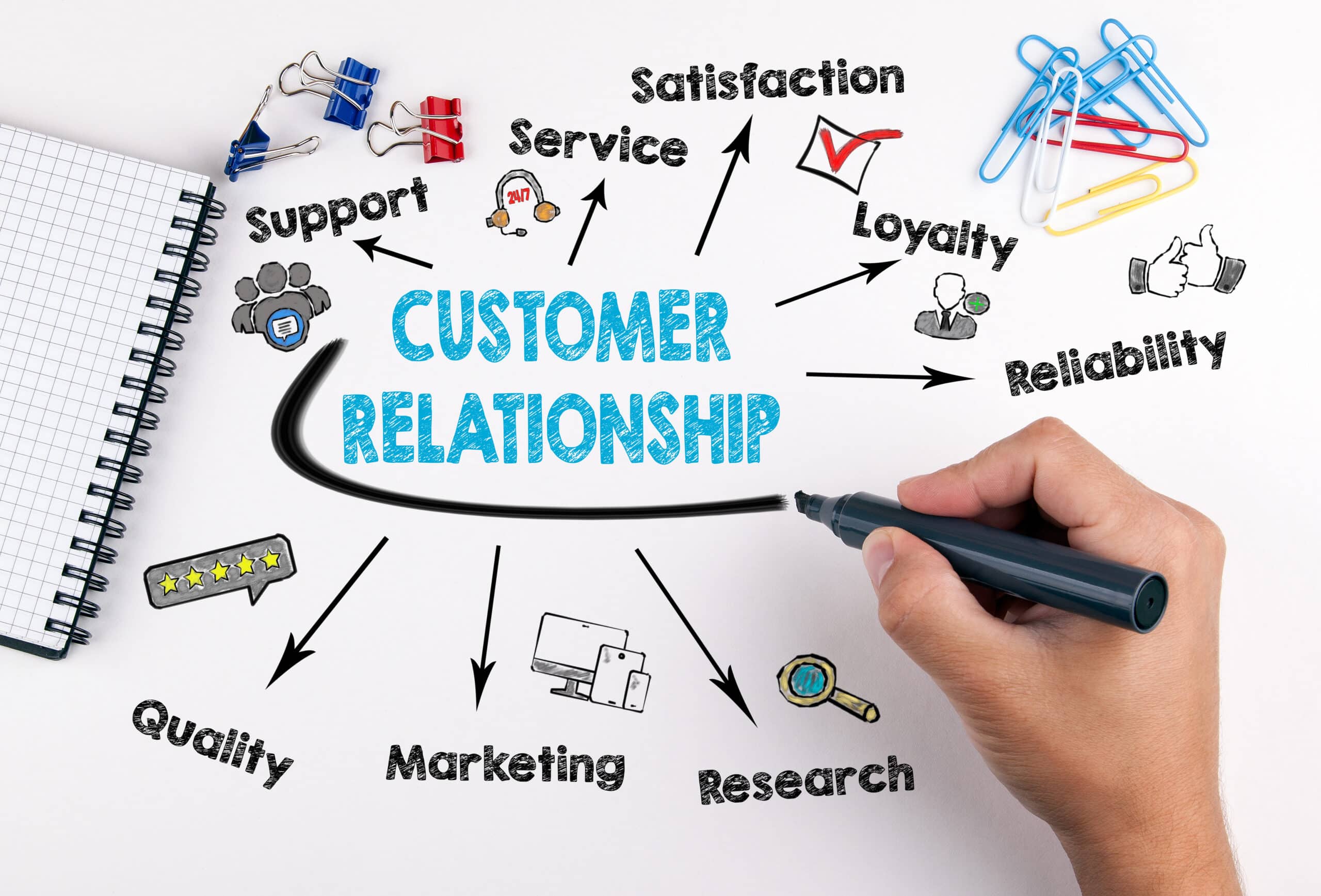Releasing the Power of Data Analysis Through CRM

As businesses continue to navigate the digital landscape, the importance of data analysis cannot be overstated. The ability to collect, analyze, and interpret data has become a crucial factor in driving business growth and success. One tool that has revolutionized the way businesses handle data is Customer Relationship Management (CRM) software. In this article, we will explore how CRM can unleash the power of data analysis and provide valuable insights for businesses of all sizes.
Understanding CRM and its Role in Data Analysis
CRM refers to a set of practices, strategies, and technologies that businesses use to manage and analyze customer interactions and data throughout the customer lifecycle. It enables businesses to streamline their sales, marketing, and customer service processes, resulting in improved customer satisfaction and increased revenue.
At its core, CRM is a powerful data management tool that centralizes customer information, interactions, and transactions. By capturing and organizing data from various touchpoints, such as website visits, social media interactions, and email communications, CRM provides businesses with a comprehensive view of their customers.
The Benefits of Data Analysis in CRM
Data analysis plays a pivotal role in CRM by unlocking valuable insights that can drive business growth. Here are some key benefits of leveraging data analysis through CRM:
- Improved Customer Segmentation: By analyzing customer data, businesses can identify patterns and segment their customer base more effectively. This allows for targeted marketing campaigns and personalized customer experiences.
- Enhanced Sales Forecasting: Data analysis in CRM enables businesses to predict sales trends and identify potential opportunities. By understanding customer behavior and preferences, sales teams can make informed decisions and optimize their sales strategies.
- Optimized Marketing Campaigns: By analyzing customer data, businesses can gain insights into the effectiveness of their marketing campaigns. This allows for data-driven decision-making and the ability to refine marketing strategies for better results.
- Improved Customer Service: Data analysis in CRM helps businesses identify customer pain points and areas for improvement. By understanding customer needs and preferences, businesses can provide personalized and proactive customer service, leading to higher customer satisfaction and loyalty.
Real-World Examples of Data Analysis in CRM
Let’s explore some real-world examples of how businesses have leveraged data analysis through CRM to achieve remarkable results:
Example 1: Company A
Company A, an e-commerce retailer, implemented a CRM system to manage their customer interactions and data. By analyzing customer purchase history, browsing behavior, and demographic information, they identified a segment of customers who frequently purchased high-end products. Armed with this insight, they tailored their marketing campaigns to target this specific segment, resulting in a significant increase in sales and customer satisfaction.
Example 2: Company B
Company B, a software-as-a-service (SaaS) provider, utilized data analysis in its CRM to improve its customer service. By analyzing customer support tickets and feedback, they identified common pain points and areas for improvement in their product. This allowed them to prioritize feature enhancements and address customer concerns promptly, resulting in a decrease in customer churn and an increase in customer retention.
The Role of CRM in Data Analysis for Small Businesses
While data analysis has traditionally been associated with large enterprises, CRM has made it accessible and affordable for small businesses as well. Here’s how CRM empowers small businesses to leverage data analysis:
- Centralized Data Management: CRM provides small businesses with a centralized platform to store and manage customer data. This eliminates the need for multiple spreadsheets or disparate systems, making data analysis more efficient and accurate.
- Automation and Integration: CRM systems often come with automation and integration capabilities, allowing small businesses to streamline their data analysis processes. By automating data collection and integration with other tools, small businesses can save time and resources while gaining valuable insights.
- Scalability: CRM systems are designed to scale with businesses as they grow. This means that small businesses can start with basic data analysis functionalities and gradually expand their capabilities as their needs evolve.
Choosing the Right CRM for Data Analysis
When selecting a CRM system for data analysis, it’s essential to consider the following factors:
- Integration Capabilities: Ensure that the CRM system can integrate with other tools and platforms that your business uses. This allows for seamless data flow and comprehensive analysis.
- Customization Options: Look for a CRM system that allows you to customize data fields, reports, and dashboards according to your business’s unique needs. This ensures that you can analyze data in a way that aligns with your specific goals and objectives.
- Security and Compliance: Data security and compliance should be a top priority when choosing a CRM system. Ensure that the CRM provider adheres to industry standards and regulations to protect your customer data.
Get Your FREE 14-Day Trial and Take Your Business To The Next Level with an All-In-One Sales and Marketing Platform for businesses, agencies and marketers.
CRM has revolutionized the way businesses handle data analysis. By centralizing customer information and interactions, CRM enables businesses to unlock valuable insights that drive growth and success. Through improved customer segmentation, enhanced sales forecasting, optimized marketing campaigns, and improved customer service, businesses can leverage data analysis to gain a competitive edge.
For small businesses, CRM provides an accessible and affordable solution for data analysis. With centralized data management, automation and integration capabilities, and scalability, small businesses can harness the power of data analysis to make informed decisions and drive business growth.
When choosing a CRM system, it’s crucial to consider integration capabilities, customization options, and data security to ensure a seamless and secure data analysis experience.
Unlock the power of data analysis through CRM and propel your business toward success. Visit https://SaasExpert.ca – Your All-In-One Sales and Marketing Platform for small businesses, agency owners, and marketers.
Learn more about “Leveraging CRM for Data Retention” here.
frequently asked questions about Releasing the Power of Data Analysis Through CRM

How can data analysis in a CRM transform my business? 🌟
Harnessing the power of data analysis in CRM can completely reshape your business:
Informed Decision Making: It provides actionable insights, ensuring decisions are data-backed and not just gut-driven 📊.
Targeted Marketing: Understand customer segments and preferences, leading to personalized and more effective campaigns 🎯.
Sales Optimization: Predict sales trends, identify opportunities, and optimize your sales funnel for maximum conversion 🔥.
Enhanced Customer Experience: Gain insights into customer behavior, feedback, and pain points, allowing for improved services and offerings 💓.
What CRM data should I focus on for impactful analysis? 🔍
While every business has unique needs, some key CRM data areas are:
Customer Interactions: Track emails, calls, chats, and feedback for insights into customer preferences and concerns 📞📧.
Sales Metrics: Monitor leads, conversion rates, and sales cycles to fine-tune your sales strategies 💰.
Engagement Data: Keep an eye on campaign open rates, click-through rates, and engagement metrics for marketing optimization 🚀.
Customer Lifetime Value (CLV): Analyzing CLV can help prioritize high-value customers and tailor retention strategies 💎.
How can CRM data analysis improve team productivity? 👥
Utilizing CRM data analytics can supercharge team efficiency:
Streamlined Processes: Identifying bottlenecks or redundant steps in workflows helps in process optimization ⚙️.
Task Automation: Automated reminders, follow-ups, and tasks based on data triggers ensure nothing falls through the cracks 🔄.
Data-Driven Training: Understanding areas of improvement through data can lead to targeted training and resource allocation 📚.
Enhanced Collaboration: Shared insights promote cross-departmental collaborations, ensuring everyone is on the same page 🤝.
Are there any advanced analytical tools I can integrate with my CRM for deeper insights? 🔬
Absolutely! Many powerful analytical tools can integrate with CRMs:
Business Intelligence Tools: Platforms like Tableau or Power BI can delve deep into CRM data, providing comprehensive visual reports 📈.
AI & ML Solutions: These tools can offer predictive analytics, customer sentiment analysis, and more, based on CRM data 🤖.
Survey Integrations: Tools like SurveyMonkey or Typeform can be synced with CRM to derive insights from customer feedback 📋.
Marketing Analytics: Platforms like Google Analytics or HubSpot provide granular insights into campaign performances when integrated with CRM 📊.
How can I ensure the data in my CRM is clean and reliable for analysis? 💎
Garbage in, garbage out! Ensuring data quality is essential:
Regular Audits: Schedule routine data audits to spot inconsistencies, duplicates, or errors 🔍.
Data Entry Protocols: Implement clear guidelines and training sessions for staff entering data into the CRM 📚.
Automated Clean-Up Tools: Utilize CRM features or third-party tools that auto-detect and rectify anomalies 🧼.
Feedback Loops: Encourage team feedback on any data discrepancies they encounter, allowing continuous improvements 🔄.
- crm
- customer relationship management
- Releasing the Power of Data Analysis Through CRM
- What is CRM Software?







